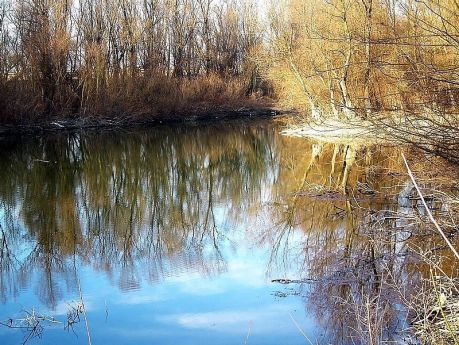Improved management of groundwater resources

Lake, fot. public domain
In the face of climate change and ever more intensive land use, EU-funded researchers gathered new data on groundwater and the ecosystems that depend upon it. Their work supports tools and methods for managing these systems in an integrated way, while considering environmental, economic and social factors.
Groundwater resources are under increasing pressure from land use and
water consumption, as well as contamination by industry and agriculture.
The result is negative impacts on drinking water and ecosystems.
Furthermore, the additional effects of climate change are difficult to
separate from those caused by land use. Therefore, new information was
required in order to better protect groundwater and
groundwater-dependent ecosystems (GDEs).
The GENESIS (Groundwater and dependent ecosystems: New scientific basis on climate change and land-use impacts for the update of the EU Groundwater Directive) project integrated pre-existing and new scientific knowledge into new methods and tools for the revision of the Ground Water Directive (GWD). This information was also to be used for the better management of groundwater resources.
GENESIS conducted research in hydrology, water resources, hydrogeology, agronomy, soil science, modelling, sociology and legal aspects. Aquifers, groundwater systems and ecosystems were studied in different regions of Europe. These case studies covered different climatic regions and land-use pressures, as well as socioeconomic systems.
Researchers used environmental tracer techniques and mathematical models to characterise the flow of groundwater systems. Other modelling frameworks were developed to better understand groundwater systems as a whole and the impacts of land use and projected climate change.
Tools for sustainable, cost-efficient management were also developed, and stakeholder preferences, potential conflicts, and socially, economically and ecologically acceptable policy solutions were identified. Researchers also investigated biogeochemical processes and the leaching of pollutants from the topsoil into the groundwater table.
Scientists performed a benchmark study of nitrate and pesticide leaching models, and reviewed methods for assessing and reducing groundwater pollution. In addition, they explored relevant indicators and management issues to determine the interaction between groundwater and GDEs. The results helped to explain how ecosystems are hydrologically connected to groundwater and how hydrology and ecology are related in these systems.
Results from GENESIS provided valuable guidance on technical issues related to pressures and impacts in groundwater bodies and GDEs. They were also used to characterise GDEs in the development of conceptual models of case study systems by providing a clearer understanding of groundwater hydrology, ecosystems, modelling and water management. The project's findings will also provide a scientific basis for the GWD.
published: 2016-02-09